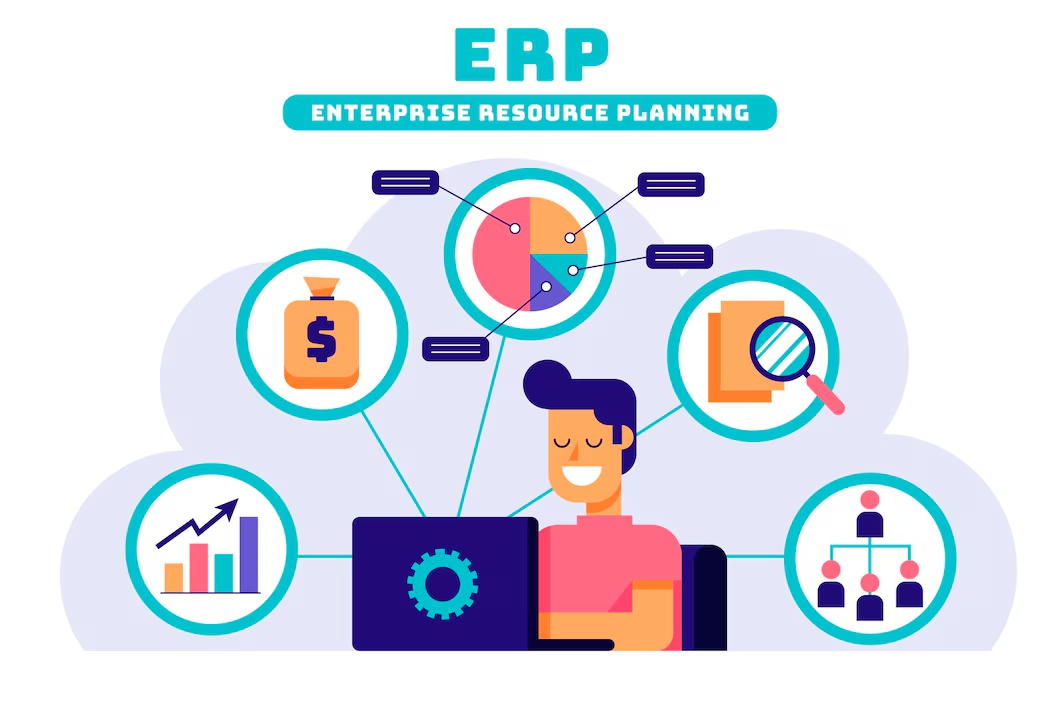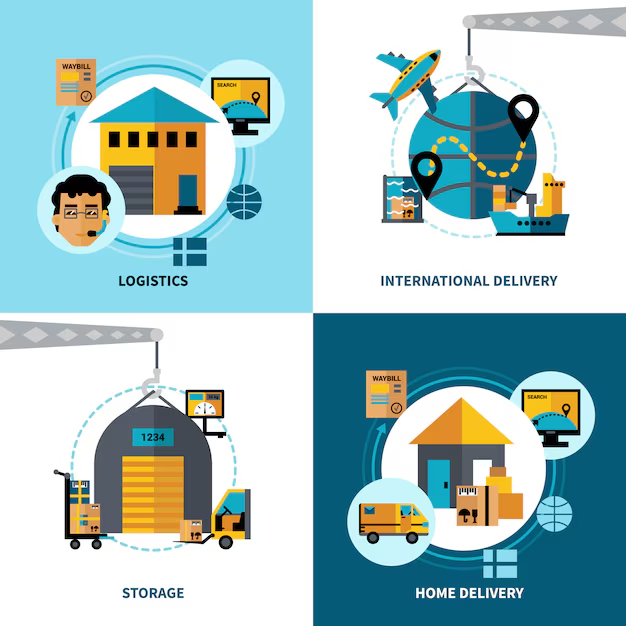In the context of the increasingly fierce competition in the Freight Forwarding industry, optimizing costs and operational time is a competitive factor for every business. The ERP system (Enterprise Resource Planning) is a comprehensive solution that helps Freight Forwarding businesses effectively manage their operations, thereby enhancing productivity and minimizing costs.
In this post, we will introduce you to how ERP systems optimize costs and operational time for Freight Forwarding businesses. From then on, ensure that every minute, all resources and efforts are optimized for maximum efficiency and profit.
Automating processes, minimizing errors, and increasing productivity.

Operating a Freight Forwarding business requires a high level of precision in every step, from asset management to transportation planning. ERP is indeed a powerful assistant that helps businesses automate processes, minimize errors, and significantly increase productivity. ERP provides a comprehensive asset management system, helping businesses track the detailed status of each vehicle, equipment, and warehouse. As a result, maintenance and repairs can be planned more effectively, minimizing the risk of damage, extending the lifespan of assets, and reducing unexpected costs.
With the ability to analyze big data, ERP suggests the shortest transportation routes, saving fuel and delivery time. At the same time, the system also helps optimize load distribution, ensuring safety for goods and vehicles. In addition, ERP helps businesses closely monitor inventory levels, preventing stock shortages that could affect orders and excessive inventory that leads to waste. Thanks to that, businesses can accurately forecast market demand and adjust their production and operations accordingly.
Data integration, enhancing accuracy

In the modern business environment, managing a large volume of data from various sources is a significant challenge for companies. ERP has solved this problem by integrating all departments within the enterprise into a unified system. ERP functions as a data hub, connecting all departments from business, production, and warehousing to accounting. As a result, the business obtains an accurate, up-to-date, and comprehensive data source, helping to eliminate issues of data being scattered, duplicated, or incomplete.
Enhance transparency, minimize the risk of fraud
ERP provides detailed, visual reports on all activities of the business. Managers can easily analyze data, identify trends, and make informed business decisions based on real data. With ERP, all activities of the enterprise are recorded and stored clearly. This helps enhance transparency, minimize the risk of fraud, and ensure accountability for each individual. At the same time, ERP also helps businesses comply with legal regulations and quality standards effectively.
Significant cost savings.
One of the biggest benefits of implementing an ERP system in a transportation business is the ability to significantly reduce costs. ERP not only helps optimize processes but also assists in calculating and minimizing unnecessary costs. Thanks to the ability to optimize transportation planning, track routes, and minimize delivery times... This directly leads to significant fuel savings, reduced operating costs, and environmental protection.
ERP automates many manual tasks, from invoicing and inventory management to order tracking. As a result, employees can focus on more value-added tasks, minimize errors, and increase productivity. ERP helps reduce office supply costs, paperwork, and other incidental expenses by digitizing processes. At the same time, ERP also helps businesses minimize the time spent on administrative procedures and enhance management efficiency.
Conclusion
In the era of digital transformation, where data has become a valuable asset, ERP software is an indispensable tool for Freight Forwarding companies. By automating processes, integrating data, and optimizing resources, ERP helps Freight Forwarding businesses quickly adapt to market changes, enhance operational efficiency, and compete sustainably.
Sota FMS is a comprehensive enterprise management software specifically designed for Freight Forwarding companies, making it easy to manage every aspect of the business, helping Freight Forwarding companies optimize processes, reduce costs, and significantly enhance operations. Contact us to receive consulting materials!